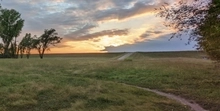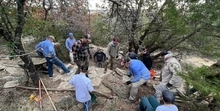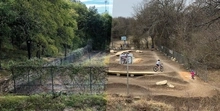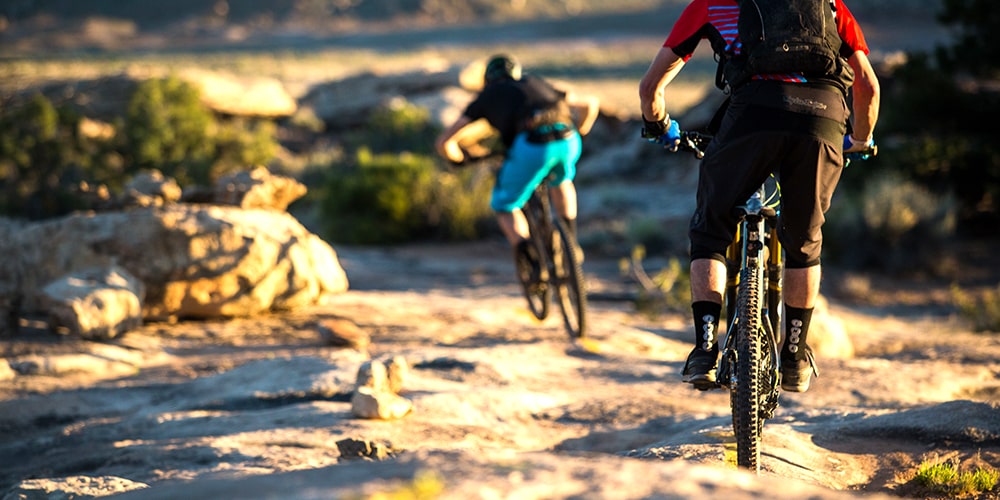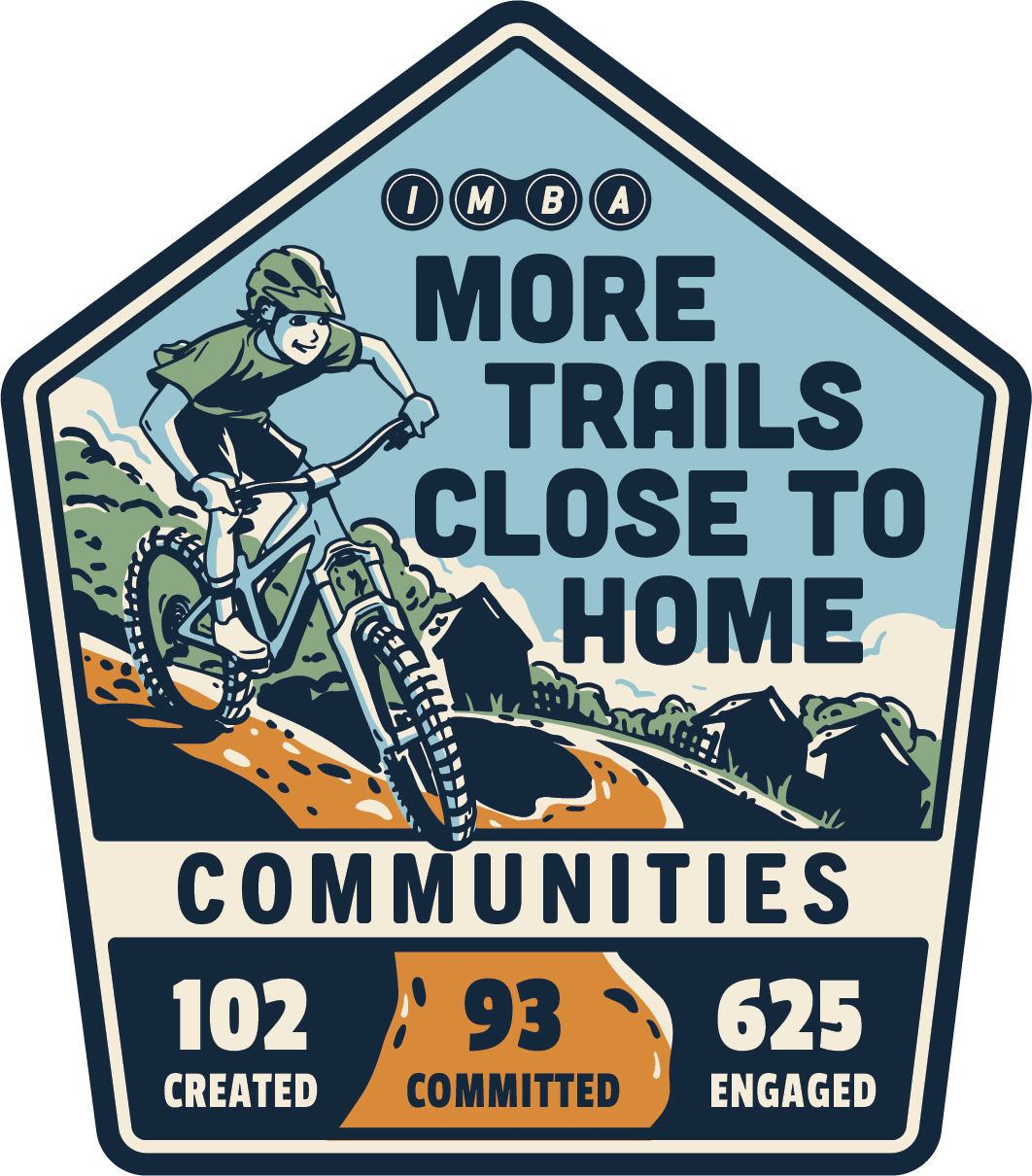Jolie Costello: Women’s Mountain Biking Day 2025
Last week, mountain bike advocates from around the country descended upon Washington, D.C., to learn and advocate for mountain biking.
The Fly-In was organized and led by IMBA’s Director of Government Affairs, Todd Keller. IMBA Policy Manager Aaron Clark, Director of Local Programs Anthony Duncan, and a few IMBA board members also made the trip. It was an odd sight to see a group of typically spandex and baggie-clad riders most comfortable covered in a thin layer of dirt, suited up D.C.-style and prepared to make a positive impression in the nation’s capital. As Todd Keller put it: “If we want to be taken seriously, we need to look the part.”

Our messaging was three-fold. First, we were advocating for and seeking additional co-sponsors for the Biking on Long Distance Trails (BOLT) Act. The BOLT Act creates a catalog of ten existing, long-distance bike trails at least 80 miles long and identifies opportunities to develop or create ten more long-distance trails. It also directs federal land managers to coordinate with stakeholders to develop resources to complete long-distance trails. I am especially excited about this bill as I see many opportunities for a long-distance trail in Las Vegas, where the city is completely surrounded by public land. The BOLT act passed through both the House and Senate last year, but since it was a stand-alone bill in the House and part of a package in the Senate, it never made it to the President’s desk to be signed into law. IMBA is back to work in hopes it will be passed in 2023.
IMBA was also providing comments on a recent Bureau of Land Management (BLM) proposed rule- Conservation and Landscape Health. While IMBA supports the conservation efforts in the new rule, the language is deemed vague, and it is unclear how it will affect mountain bikers and trails on BLM land. IMBA is asking for clarity so that mountain bike access to trails is not dependent on interpretation from different administrations. IMBA supports recreation as a tool for conservation on public lands. As Aaron eloquently points out, mountain biking is a great bridge to conservation. Mountain biking is a non-consumptive activity that allows people to interact, appreciate, and value public land.

Finally, IMBA was advocating for increased resources for land managers. It is well known that the BLM and United States Forest Service (USFS) function on a shoestring budget. Trail infrastructure projects already funded through grants are being held up because land managers don’t have the staff to work through the process. Hearing the stories from other trail advocacy organizations made me increasingly grateful for the partnership Southern Nevada Mountain Bike Organization (SNMBA) has with the BLM Red Rock Field Office, who has partnered with us on three different proposed trail projects over the past two years. One of the first things I want to do at SNMBA’s next meeting with the BLM is give them a giant thank you!

Our days in D.C. were jam-packed. We started each day with a morning briefing at the Outdoor Alliance office. Outdoor Alliance, a coalition that unites the voices of outdoor enthusiasts to conserve public lands that IMBA is a member of, helps to ensure they are managed in a way that embraces the human-powered experience. The bulk of our days were filled with meetings with Senators, Representatives, staff, and agencies such as the BLM, Department of Defense, and Council of Environmental Quality. Meetings ranged from 15 minutes to an hour in length. They started on time and didn’t go a minute over. Not a second was wasted in the rapid-fire dialogue where Todd and Aaron banged out key talking points. Our role as mountain bike advocates was to share our experiences and challenges in our respective communities. Being my first time advocating in D.C., at the beginning of the week, I felt like everyone was speaking a foreign language. The discussion was fast and full of acronyms and terminology I was unfamiliar with. I considered it a personal victory that I could keep up with the conversation by the end of the week. After days full of policy and protocol, we decompressed in the evening with group dinners and even some light-hearted pickleball where the only rule was that there were no rules!
Throughout the week we were provided constant tutelage and feedback from Todd and Aaron. Todd, a D.C. local, also served as a tour guide of sorts. He was so good at this role that at one point, while in Lafayette Park near the White House, he was mistaken by a tourist as an actual tour guide and enthusiastically answered their questions.

Highlights for me included speaking with Representative Susie Lee (D-NV). She is a sponsor of the BOLT Act and an avid mountain biker. I had the opportunity to share with her the proposed trail projects that SNMBA is working on in the Las Vegas area. Another sponsor of the BOLT Act, Representative Curtis (R-UT), shared a story about his grandson participating in the Utah NICA league that warmed my heart. Mountain biking is a bipartisan issue well-received on both sides of the aisle.

Watching Todd and Aaron perform in meetings highlighted the importance of having a DC-based government affairs expert (Todd) who understands the legislative process and maintains relationships with federal agencies and a policy expert (Aaron) who intimately understands how policy may affect recreation, specifically mountain biking, and is also gifted at rattling off critical talking points.
Bringing a group of mountain bike advocates together also provided a great networking opportunity. Throughout our days in D.C., we shared and discussed issues we face at a local and regional level. Not only did I leave D.C. with new skills and several ideas to bring back to my communities, I walked away with a great group of new friends who are doing inspiring work around the country.

I am incredibly grateful for the opportunity to participate in IMBA’s D.C. fly-in. I have a new appreciation for the advocacy work IMBA does at a national level. Federal policy affects recreation locally, and IMBA is working hard to ensure mountain biking has a seat at the federal decision-making table.



